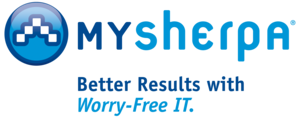Many healthcare providers have shifted to electronic health records (EHRs). Compared to paper-based systems, EHR systems offer greater information recency and accessibility to patient records. Before switching to EHR systems, your practice must first understand the following.
HIPAA compliance guidelines for social media usage

Social media can be a powerful tool for healthcare organizations to spread awareness. But in using social media, these organizations must adhere to specific Health Insurance Portability and Accountability Act (HIPAA) compliance standards. In this blog post, we will discuss guidelines for HIPAA compliance regarding the use of social media.
Work from home exercises to help you stay fit
Exploring blockchain in healthcare
The benefits of cloud computing to patients and healthcare providers

There's no doubt that cloud computing is revolutionizing healthcare. From improving patient care to making medical records more secure, the cloud is making continues to make a big impact in the world of healthcare. Here are just a few of the benefits of using cloud solutions in your healthcare practice.
The advantages of telemedicine

When you have questions about your health or are feeling under the weather, you usually set up a face-to-face meeting with your healthcare provider. But advancements in communication technology are allowing people to consult with their doctors anytime and anywhere through a service called telemedicine.
The benefits of online scheduling solutions for healthcare practices
Here’s what to look for in health apps and wearable tech
What an MSP can do for healthcare providers

More and more healthcare organizations are turning to managed IT services providers (MSPs) for their IT needs. Outsourcing their IT functions enables hospitals and clinics to focus on being healthcare providers rather than IT professionals. Here are some of the best benefits of hiring one:
MSPs guarantee quick response times
Constant system uptime and availability can be a matter of life and death in the healthcare industry, which makes quick IT support response times crucial for any healthcare practice.






